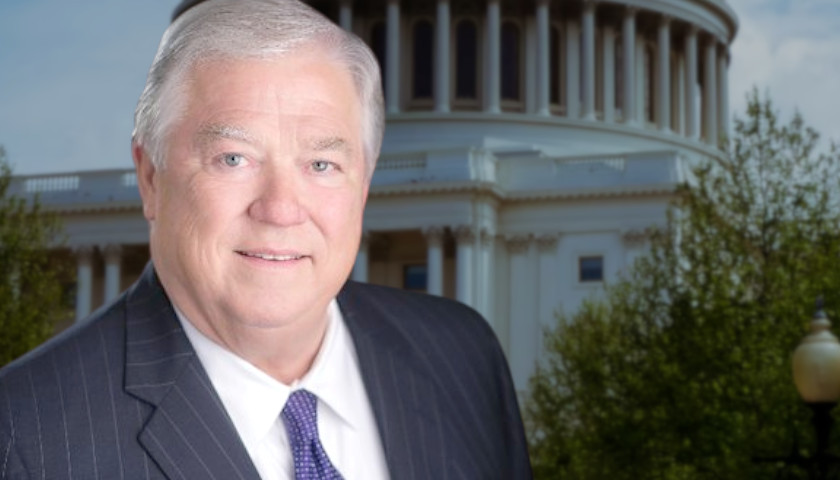The man who led the Republican Governors Association (RGA) during the 2009-2010 Tea Party wave that swept Republicans into eight governorship pickups and control of the House expressed caution about predicting big GOP wins in 2022 this early in the cycle.
“There is still a long way to go before there is a ‘this wave,’ said former Mississippi governor Haley Barbour, who was the RGA chairman from June 2009 through the 2010 midterms, when the GOP won 2009 governor races in Virginia and New Jersey, and including 2010 wins in crucial battleground states Pennsylvania, Ohio, Wisconsin and Michigan.
“There is a lot of time, I think things can change in a year, but right now, it looks very promising, said Barbour, who served as the Magnolia State governor from 2004 to 2012.
“I just think we need to not be premature – my mama told me, don’t brag on something until you’ve done it,” he said.
As for the GOP’s governors, Barbour said he was very high on their prospects.
“Our Republican governors are incredibly popular,” he said. “You take the 10 most popular governors with the highest job approval in the United States; they’re all Republicans. Nineteen out of 20, it’s just remarkable how Biden has tried to do everything he can to nationalize everything and drive power away from the states to the federal government; the governors are the ones who are really popular.”
Barbour said a big part of the reason for the popularity of the GOP governors is their performance through the COVID-19 pandemic.
“The governors are the ones who get credit for doing something that worked on COVID,” he said.
“It looks very promising in the House—Democrats are continuing to have retirements,” he said. “That is one of the things that hurt us in ’18 when we lost a bunch of seats—’cause I think we had 41 retirements.”
In addition to the retirement of House Republicans, which included Speaker Paul D. Ryan (R.-Wis.), there the GOP left 40 House Democrats unchallenged in the 2018 midterms.
Barbour, who also led the Republican National Committee during the 1993-1994 Contract with America wave, said he looks back at that cycle, which set up the confrontations between Speaker Speaker Newton L. “Newt” Gingrich (R.-Ga.) and President William J. “Bill” Clinton.
In that wave, Republicans took over the House and Senate for the first time since 1955, and Barbour said the warning tremor was felt in 1993.
“The 1993 elections were great for Republicans,” he said.
“We elected a mayor of New York City, a mayor of Los Angeles, picked up a Senate seat in Texas, when Bensten became secretary of the Treasury, Huckabee won the lieutenant governor of Arkansas—Clinton’s home state—and then, of course, we won New Jersey and Virginia governorships,” the former Mississippi governor said.
“I think about ’94, 2010, and then, what are we going to be able to do in ’22 and ’24,” he said.
Barbour said he looks to see what is happening in the individual states because the political developments in the states led to developments nationally.
“Lots of states are very different from the country as a whole, and the country as a whole is very different from a lot of states,” he said.
“When you take California and say: ‘Well, the Democrats are doing well in California,’—it’s a huge state that makes a lot different in the national numbers,” he said.
The California numbers skew the national numbers towards the Democrats, which leads some people to ignore opportunities in the individual states because they look only at the national poll numbers, he said. “Where we can pick up four, five or six, whatever senators, and 20 House members in smaller states.”
– – –
Neil W. McCabe is the national political editor for The Star News Network. Follow him on Twitter: @neilwmccabe2.
Photo “Haley Barbour” by Haley Barbour.




